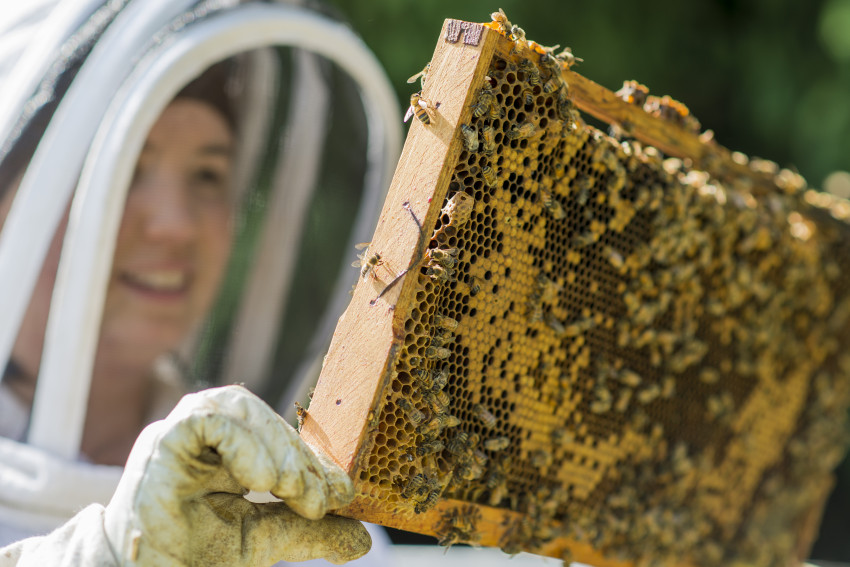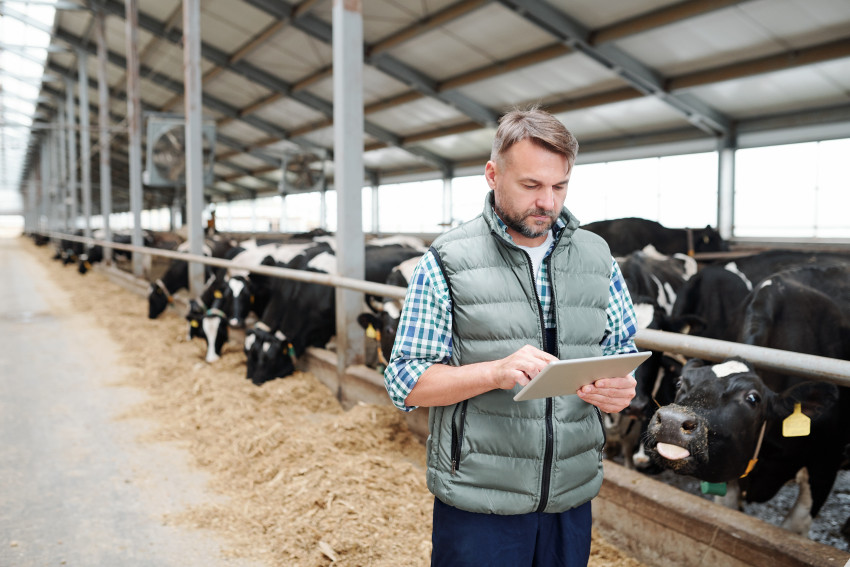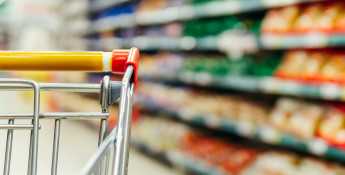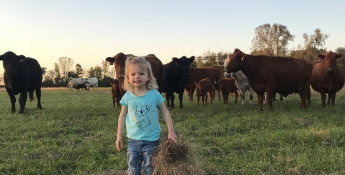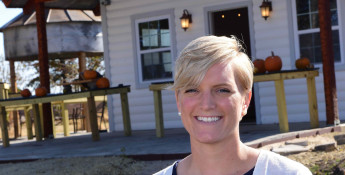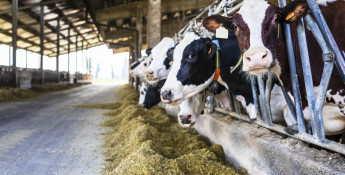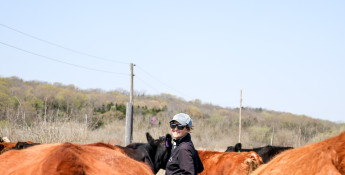By Greg Doering on May 26, 2020
Shop Kansas Farms Helps Make Connections
Facebook group links farmers and ranchers to consumers
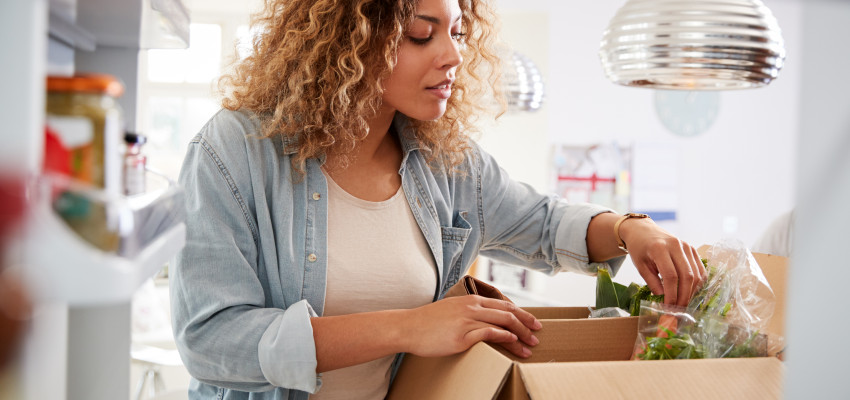
The Covid-19 pandemic has ignited a movement of consumers seeking out farmers and ranchers for more direct connections. And it all started on Rick McNary’s couch one evening in late April.
“My wife said she had been to the store that day and the meat counter was empty,” McNary says. “I’ve got my computer in my lap and I thought, ‘I wonder how I can connect my friends with people like Kregg and Katie Carothers of KCK Farms.’”
McNary created the Facebook group “Shop Kansas Farms” expecting to help a few hundred people find locally produced meat, eggs, dairy and vegetables. McNary says he published the group at about 7 p.m. and checked in on it a few hours later, and he was amazed at the response.
“I thought, ‘Holy cow,’ and I’ve been saying that ever since,” McNary says of the group that’s grown to more than 130,000 members across the state.
“What is driving people in this is the exact same motivation that made them scarf up all the toilet paper, and that’s fear,” he says. “Behind every one of these transactions is fear. It came when the food system was breaking so they quit trusting the system that’s been a great system and still is. There was a hiccup.”
RUNAWAY FREIGHT TRAIN
The exponential growth has gone beyond the primary purpose of connecting buyers and sellers, there’s a dialogue happening where each party is learning more and more about the other.
“There’s been a wonderful education opportunity between consumers and farmers and ranchers as they learn each other’s lingo,” McNary says.
There are limits to using a social media platform for such an endeavor. Facebook prohibits selling live animals, the group’s size requires constant moderation from volunteers and it’s a magnet for brash opinions.
“The monitoring of the vitriol has been a real challenge, but I think we’re getting better at it,” McNary says.
McNary is understanding of following Facebook’s rules on the platform, and he says Shop Kansas Farms also has put rules in place to create a wholesome, supportive community.
The first rule, “Be nice and share or you’ll end up in timeout,” is still the No.-1 rule for the group.
“We want to create civil discourse where there’s learning and mutual respect,” McNary says. “This is about connecting people who are looking for food to the wonderful farm and ranch families in Kansas who are growing the food.”
BUILDING A SYSTEM
McNary sees Shop Kansas Farms outlasting the pandemic because of the connections consumers are making with farmers and ranchers across the state.
“There is a regional food system being built just by the nature of what’s going on,” he says. “There’s tremendous economic development going on right now. Frankly, I think we’re watching rural revitalization.”
The group was full of testimonials over Memorial Day weekend as people received their mail orders and used them for family cookouts.
“One of the best ribeye steaks I’ve had the pleasure of cooking,” Ian Horne wrote. “Thanks Walnut Valley Packing in El Dorado.”
The group also has become a template for similar projects across the country. There’s even a section of the group dedicated to helping others start similar pages. That’s directly related to the success local producers have seen using the platform.
“The thing people are willing to pay for is the story,” McNary says. “What I’m seeing transpire is consumers now have a story for the products they’re buying. They not only know their food, they know their farmer. It’s not just a catchy phrase.”
Jacquelyne Leffler’s custom beef business, Leffler Prime Performance, has benefitted from customers looking to buy meat directly from a rancher. While her business was growing before Shop Kansas Farms came online, it’s helped her reach a larger audience. She’s sold 140 head of cattle to nearly 500 customers since the pandemic began.
“These milestones would not be possible without Shop Kansas Farms,” Leffler says. “It has given my family’s farm and ranch a second avenue to market our fat cattle and ensure we at least break even.”
Beef, pork and chicken producers have received plenty of attention on the group, but so have specialty producers hurt by scaled-back farmers markets, delayed festivals and canceled fairs.
There’s a cornucopia of products available from fresh milk and dairy products to jams and jellies. Local honey, fresh pork rinds and homegrown produce are just a few of the items available at the virtual farmers market McNary has created.
BUILDING A PLATFORM
One limitation of wrangling a market of several thousand buyers and sellers in a state the size of Kansas is simply sifting through the bevy of information available to find what’s relevant. There are regional units within the group to help, but McNary also is eyeing other opportunities.
“We’ve already been talking about a website because of the limitations of Facebook,” McNary says. “Two of the biggest requests are being able to have an interactive map and the opportunity to sell cattle (and other livestock).”
McNary thinks those two things are key to making it convenient for consumers to find local products in their area to make picking up eggs and milk on a farm or ordering beef from a nearby rancher as simple as a few clicks.
Like Shop Kansas Farms, the website will continue McNary’s original mission of connecting his friends with farmers and ranchers across Kansas, including the tens of thousands of new ones he’s made in recent weeks.
“It’s just people connecting to people,” McNary says. “That’s what’s growing this.”

